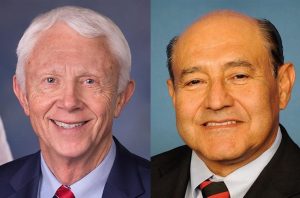On July 8th, 2021, President Biden stood in the East Room of the White House to declare:
“The United States did what we went to do in Afghanistan: to get the terrorists who attacked us on 9/11 and to deliver justice to Osama Bin Laden, and to degrade the terrorist threat to keep Afghanistan from becoming a base from which attacks could be continued against the United States. We achieved those objectives. That’s why we went.”
Less than three years later, terrorist organizations have reconstituted and now threaten not only the Middle East region but the United States Homeland. This is why the Special Operations Association of America (SOAA) has penned an open letter of concern to policymakers illuminating the alarming trends we see in the world and here at home.
Since August 2021, the United States has had to order the evacuation of nine U.S. Embassies around the world. At the end of 2023, the annual Armed Conflict Survey concluded that there are 183 conflicts ongoing in 2023, the highest number in 30 years. The current environment only conflates and encourages terrorism, giving extremist groups freedom of movement and access to populations ripe for recruitment. In Afghanistan alone, more than 20 new terrorist organizations have sprung up under Taliban leadership. Al Qaeda’s leader, Ayman al-Zawahiri was killed in a drone strike a mile from the presidential palace in July of 2022, while ISIS-K have conducted global attacks, which were either launched or inspired from Afghanistan. Earlier this month, Afghanistan’s Minister of the Interior, Sirajuddin Haqqani, met with Emirati Sheikh Mohamed bin Zayed Al Nahyan to discuss the reconstruction of Afghanistan. Haqqani not only carries a $10 million bounty from the US Department of Justice for terrorism but is in charge of issuing Afghan passports as the Minister of Interior. Haqqani’s receival by the UAE, one of the United States’ biggest allies in the Middle East, signals a common characteristic in the Middle East – hedging. As the ancient Arabic saying goes, “Nothing is for sale, everything is for rent.” In this case, the United States is falling out of favor among our most staunch allies in the region, which has cascaded out of control since August 2021.
On April 27th, 2022, the Commanding General of U.S. Army Special Operations Command (USASOC), Lieutenant General Jonathan Braga, testified in front of the Senate Armed Services Committee on Emerging Threats and Capabilities, stating bluntly that “There is no sanctuary at home or abroad.” While the distinguished General Officer spoke specifically about personal information in the digital environment able to be exploited by adversaries, the risk of terrorism in the physical world is a product of targeting online. Porous borders offer an easy avenue of approach into the United States and coupled with publicly, or commercially, available information used to target individuals allows for adversaries to gain an asymmetric upper hand. Customs and Border Patrol has had close to 200,000 encounters a month at the United States’ Southern border, 2 million ‘gotaways’ in the last three years, and as of April 2024, Chinese nationals attempting to illegally cross the border increased by 2,147% from April of 2022. At the same time, US Navy Fleet Forces Commander, Admiral Daryl Caudle reported foreign nationals are stopped at Navy base gates attempting to infiltrate US Military facilities “two or three times a week,”. In North Carolina, a US Army Special Operations soldier shot and killed a trespasser on his property after sunset taking pictures of the soldier’s house. The trespasser claimed to be a utility worker but did not have equipment or identification in his possession, spoke broken English, and after an investigation, found his cell phone had Russian contacts and text messages. Russia has a history of hiring criminals to carry out what look like random crimes, when they are actually state-sponsored acts of terrorism or assassinations, but when we’re dealing with adversaries in the Homeland, what’s the difference?
In the dynamic, dangerous world we live in, it will be difficult to distinguish between state or non-state acts of terror. With the United States’ retrenchment from the Middle East and revocation of African presence, easily accessible personal information of Servicemembers online, and a preverbal elephant walk of dictators’ land grabs around the globe, we must be vigilant. Complacency is killing us and there is only one counter to adversaries’ projection of power – power of our own. George Washington’s first annual address to Congress in 1790 stated, “To be prepared for war is one of the most effectual means of preserving peace.”
Read Our Letter Here.
Written by our Executive Director, David Cook, and Founder and President, Daniel Elkins






